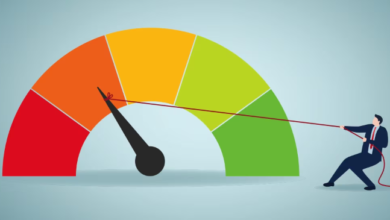Improving Your Financial Literacy

Financial literacy is a crucial skill that empowers individuals to make informed decisions about their money and secure their financial future. From managing personal loan debt to planning for retirement, being financially literate enables you to navigate complex financial situations with confidence and competence. In this article, we’ll explore practical strategies for improving your financial literacy and achieving your short- and long-term financial goals.
Understanding Personal Loan Debt
Personal loan debt is a common financial challenge that many individuals face. Whether it’s for unexpected expenses, home renovations, or debt consolidation, personal loans can provide quick access to funds but can also lead to financial strain if not managed effectively. Understanding the terms of your personal loan, including interest rates, repayment schedules, and fees, is essential for managing your debt and avoiding potential pitfalls.
Strategies for Improving Financial Literacy
One of the most effective ways to improve your financial literacy is by educating yourself about personal finance topics. Take advantage of resources such as books, websites, podcasts, and online courses to learn about budgeting, saving, investing, and retirement planning. By expanding your knowledge base, you’ll gain the confidence and skills needed to make informed financial decisions.
Set Financial Goals
Setting clear financial goals is an essential step towards improving your financial literacy and achieving financial success. Whether it’s paying off debt, building an emergency fund, saving for a home, or planning for retirement, having specific, measurable goals provides a roadmap for your financial journey. Break down larger goals into smaller, actionable steps, and track your progress regularly to stay motivated and focused.
Create a Budget
Budgeting is a fundamental aspect of financial literacy that helps you track your income and expenses and ensure that you’re living within your means. Start by listing all sources of income and categorizing your expenses into fixed (e.g., rent, utilities) and variable (e.g., groceries, entertainment) categories. Allocate a portion of your income towards savings and debt repayment, and adjust your budget as needed to align with your financial goals.
Explore Investment Options
Understanding investment basics is key to building wealth and achieving long-term financial security. Take the time to research different investment vehicles such as stocks, bonds, mutual funds, and retirement accounts. Consider consulting with a financial advisor to develop an investment strategy that aligns with your risk tolerance, time horizon, and financial goals.
Stay Informed
Staying informed about current financial trends, market developments, and regulatory changes is essential for maintaining financial literacy. Follow reputable financial news sources, subscribe to newsletters, and participate in online forums or communities to stay up-to-date on relevant financial topics. Knowledge is power when it comes to financial literacy, so make an effort to stay informed and engaged with ongoing developments in the financial world.
Conclusion
Improving your financial literacy is a journey that requires dedication, commitment, and ongoing learning. By educating yourself, setting clear goals, creating a budget, exploring investment options, and staying informed, you can enhance your financial knowledge and confidence and make informed decisions about your money. Whether you’re looking to manage debt, save for the future, or build wealth, financial literacy is the key to unlocking your financial potential and achieving your financial goals. Start today by taking proactive steps to improve your financial literacy and secure your financial future.




